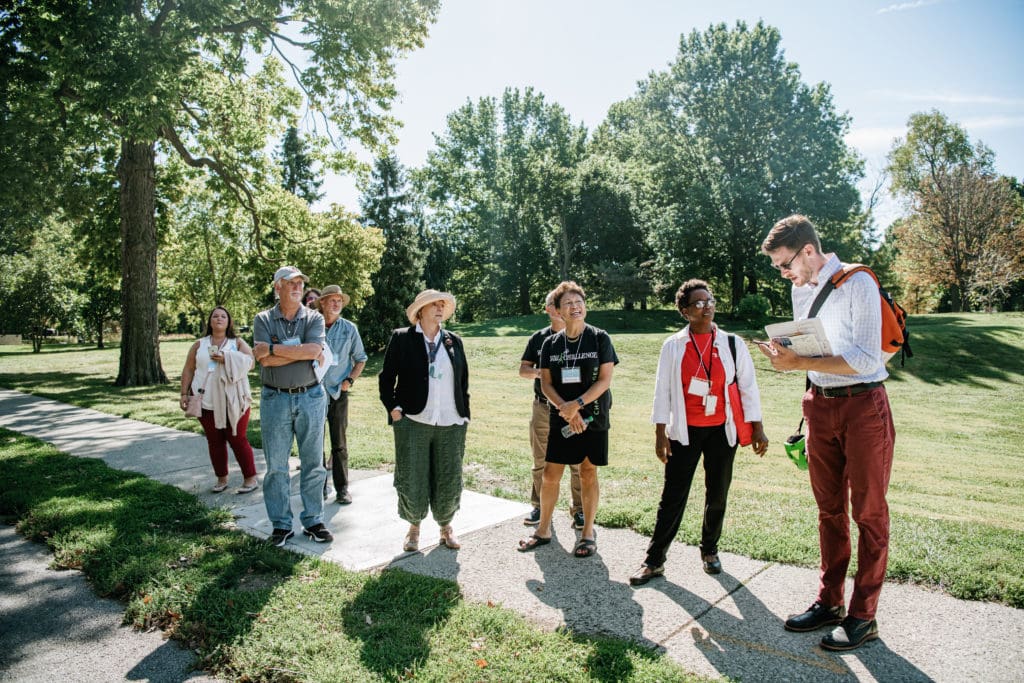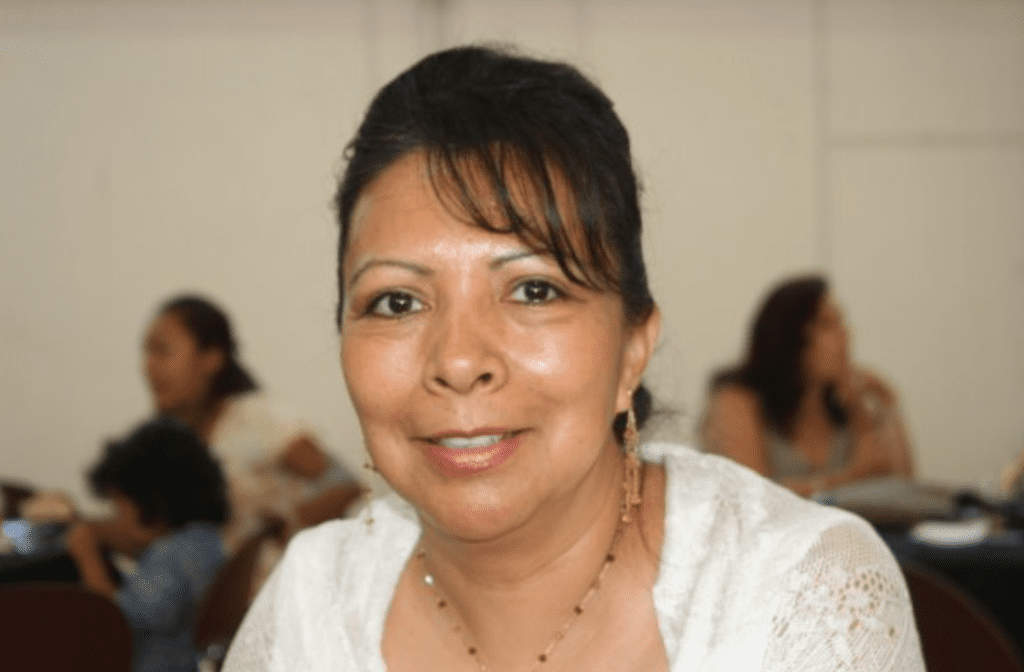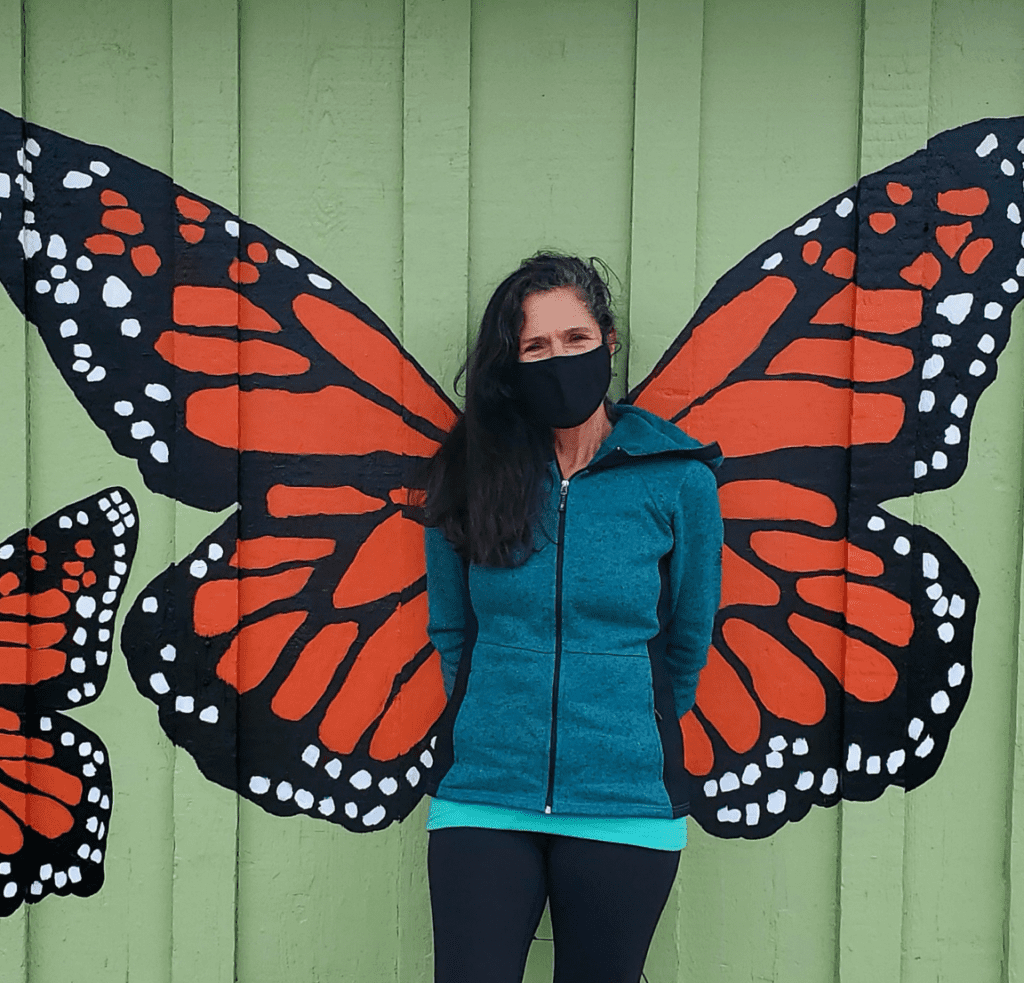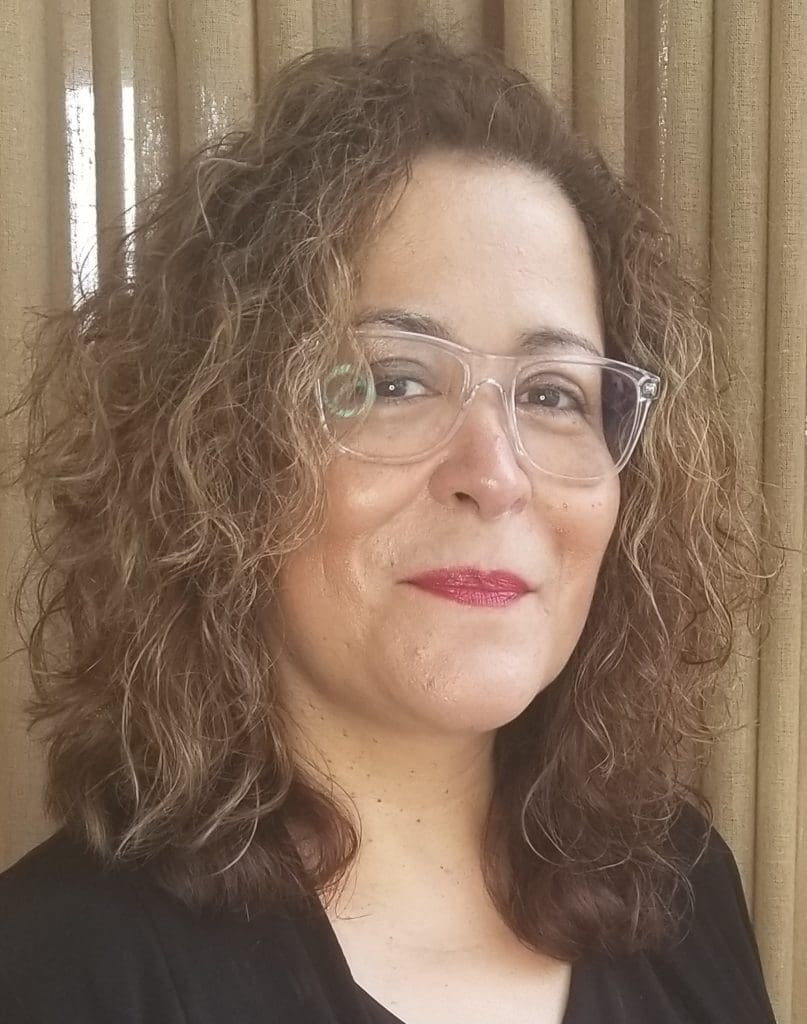
The Walking College curriculum included a new assignment this year. Based on the teachings of Marshall Ganz, a Professor at Harvard University’s Kennedy School of Government and former United Farm Workers organizer, Fellows are asked to develop their Public Narrative. This narrative consists of three parts: their Story of Self, Story of Us/Community, and Story of Now.
According to Ganz, “Stories not only teach us how to act – they inspire us to act.”
This month, we are featuring three Fellows who have just completed the California State Walking College, which was produced in partnership with AARP Livable Communities.
Hilda Gayton is a community activist and organizer with Puente Latino Association in North Long Beach, Janet Castanos is the Chair of the Community Police Oversight Board and a non-profit volunteer in La Mesa, and Magdalena Morales-Maithalouni is a community organizer and Certified Integrative Health and Wellness Coach in Los Angeles.
Check out our Walking College members’ Stories of Self:

Hilda Gayton; Community activist and organizer with Puente Latino Association; North Long Beach
I live in what I call a school corridor, because a lot of kids need to walk in front of my house on their way to school. One day I was sitting on my porch and saw these kids walking alone or sitting in the back seat of their parent’s vehicles, and I thought how different my childhood experiences were from their experiences. I thought I am part of the last generation to carry simpler childhood experiences. A childhood without a TV, or any other electronic devices, no rides to school, no fear to play outside or get hurt.
We used to walk everywhere and on the way we would find friendly neighbors that would keep an eye on us to keep us out of trouble. I was a happy kid that belonged to a neighborhood. The memories of these experiences from long ago made me happy and I felt a calling to share my experiences and move the forgotten neighborhood of my childhood back to life for you to see and enjoy. I grew up in the heart of Mexico City.
I am a child of a single mother, but I was blessed to have my aunt and uncle open their home and heart to me and my family. My uncle was a seminary student, and my aunt, a beautiful indigenous lady. During the revolution, my uncle dropped out of school and joined the Venustiano Carranza group. For him, it was worth it to leave his privileged life to join the fight for the rights of the people to have a better life. My aunt was the maid in my uncle’s house when they met and together, against all the odds, they started their family.
They adopted my mom and accepted the fact she never married, but brought 4 children—me and my brothers and sisters—to their life. I was 5 years old when my uncle told me about the importance of having the people in my neighborhood in my life. He also taught me to leave a good mark on the people crossing my path. Every day before bed he used to ask me how my day went, and what mark I left on the people I met or played with. Then 2 minutes of reflection and a plan of how I will repair any damage I caused to others by my bad behavior or unkind words. It was a challenging task that if done well, will help me to gain my uncle’s approval and the permission to go outside and play with my friends the next day.
Playing in the streets was so important for me that I would do whatever it takes for the opportunity to see my friends and my neighbors. That did not change with time. My neighborhood was an extension of my family where everyone knew each other well and I never felt alone. My neighborhood had all of the services we needed provided by our friends within a 5 min walking radius. What distinguished the dentist or doctor from the regular workers was the size of their house, but other than that we all treated each other as equals. We also had a homeless person and a street dog, and we all cared for them.
During the first 32 years of my life in Mexico, I was part of something bigger than me, I was part of a healthy, resilient, and happy neighborhood. That is what I want to bring to my community will you join me?

Janet Castanos, Chair of the La Mesa Community Police Oversight Board and non-profit volunteer with Envision La Mesa and La Mesa Conversations
I attended elementary school in a small Central Valley town in California when the Civil Rights Act of 1964 was signed into law by President Johnson. At that time, my elementary school had no Black students — but that soon changed. An African American family enrolled at my elementary school that year, one girl and one boy.
The girl, Tamara, was in my class and her brother was a year younger. From the moment Tamara came in, I noticed a stark difference in how she was treated.
Typically, new students were brought up to the front of the room and were introduced to the class by the teacher. They were then provided with a new friend who would introduce them to other students while also showing them around the school (lunch line protocols, restroom locations, playground rules, etc.). The normal protocol was not followed this time with Tamara. I instinctively sensed an unwritten and unspoken rule that we were not to welcome this new student nor were we to engage with her in any way.
I couldn’t understand why she was being treated differently since we were taught to treat others the way we wanted to be treated. In spite of my confusion, I instinctively understood that any of the current students who broke this unspoken rule would get punished.
At recess time, I watched Tamara sit with her brother on the playground watching the rest of us play kickball. I yearned to include her and even started walking towards her to invite her to join us in the game when I received a stern look from the teacher with an outstretched finger indicating that I should go back to the game. I didn’t want to get in trouble. I knew it was not right to treat Tamara differently but I was afraid of that teacher and I was only 9 years old. I followed orders but learned that day that sometimes following orders is not always the right thing to do. I couldn’t get Tamara’s forlorn face out of my mind that whole day and I vowed to myself that night that I would invite Tamera and her brother to join us in our kickball game the following day in spite of the consequences. But that next day, I found out that Tamera and her brother stopped attending our school. I don’t know where they went but they taught me a valuable lesson — treat all people the way you want to be treated.
I failed with Tamara and her brother but I took it as my duty and obligation to welcome all new students to my class after that. It took several years for another Black family to brave the school but none were ever again treated so disrespectfully. Those first two were the trailblazers. To this day, I long to apologize to Tamara and her brother for being unwelcomed and ignored at my school. I have always greatly admired their fortitude and bravery. They both taught me the lesson of a lifetime and I hope to use this knowledge to make my new town of La Mesa a more welcoming, supportive, and caring community.

Magdalena Morales-Maithalouni, Community organizer and Certified Integrative Health and Wellness Coach Los Angeles
Here is my attempt to tell my story. This is a bit harder than I expected.
My name is Magdalena Morales-Maithalouni. I am of proud Mexican roots from the state of Guanajuato and a native Los Angeleno. I am the daughter of Mexican American community leader Dionicio Morales and Disability Parent Advocate Maria L Morales. I come from a legacy of community engagement. The topic around our dinner table was always what are we going to do to make our community better place.
My mother was a parent disability advocate, I grew up with a twin brother with Down Syndrome. She helped other Latino parents and caregivers navigate the complicated developmental disability system community in Spanish and created programs that still in existence to support other parents today. My Pop, founder of the Mexican American Opportunity Foundation one of the largest Latino organizations in the country passed away 13 years ago. I still hear his voice asking what can and will I continue to do for my community.
He continued his activism until his death as he was at the office the day he went into the hospital after 8 years on dialysis. He said he still had dreams and there was work that still needed to be done especially in the Latino community. His body not his mind gave out. He is my inspiration, as today I live with my new normal as I inherited the same Kidney condition.
What can I do to make my community a better place with my passions and dreams in this new reality? I have a passion for walking and public transportation. It has saved my life. It has raised my awareness of inequities and lack of information in various languages. It has brought me closer to nature. I have become a tourist in my own town. I have a quest to incorporate these important parts of my life for the greater good.
If I didn’t learn anything from my parents, one person at a time can make a difference. There is a need for a greater Walking movement for the eastside Los Angeles Latino community in a culturally relevant way, in language and accessible for all. Health issues continue to worsen in my community. We need to be able to move the needle to get more people moving in a safe way. We live in multiple generations in one home which include parents, grandparents, caregivers, children, and extended families.
“Ohana” means family—nobody gets left behind or forgotten. The Whole Family to be included with accessibility/opportunities for those with disabilities and chronic illnesses like myself and my twin brother.
The Walking College offers participants an opportunity to hone their skills and knowledge around creating vibrant, safe, accessible communities for all.
Paired with experienced advocates, fellows learn about the historical underpinnings of the car-centric transportation landscape, the basics of design and policy of non-motorized transportation, and develop essential leadership skills. Learn more.